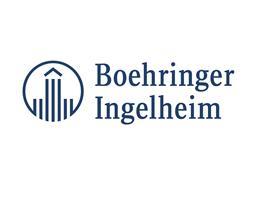The covid pandemic has created challenges for many NHS services, including those dealing with patients with respiratory conditions.
Sponsored by
A webinar, sponsored by Boehringer Ingelheim, at HSJ’s virtual respiratory forum looked at the impact on services for patients with idiopathic pulmonary fibrosis and how these could be improved post-covid.
At least 32,000 people in the UK have IPF, with 6,000 new cases a year. IPF is a chronic progressive lung disease with a prognosis that can be worse than some cancers, two and a half to five years post diagnosis. Treatments in the form of antifibrotics are available across the UK after accurate diagnosis and prescribed by designated specialist centres across England (differences exist within the devolved nations).
The covid pandemic has disrupted many of these services. At Manchester University Foundation Trust, many outpatient services were halted from March to August last year and an estimated 1,300 to 1,600 lung fibrosis patients were not seen. “There are long waits and we are struggling to catch up with both new and follow-up patients,” said Dr Nazia Chaudhuri, clinical lead in interstitial lung disease. As lung function tests are designated as aerosol generating, extra time had to be allowed between patients and additional ventilation installed. This slowed the diagnostic pathway for patients, she said.
Patients with IPF who contract covid are also at a higher risk of dying than a matched cohort – yet were not initially included on the government’s list of those who should shield. Through campaign work from Action for Pulmonary Fibrosis and the British Thoracic Society, patients with lung fibrosis were subsequently added to the clinically extremely vulnerable group. Many, however, did choose to shield with impacts on their psychosocial wellbeing, she said.
But services have responded to many of these challenges by changing normal practices. Nationally, the National Institute of Health and Clinical Excellence (NICE) authorised the use of historical lung function results up to 12 months old for prescribing new antifibrotic medications for patients with IPF, because of the challenges of obtaining up to date lung function tests, Dr Chaudhuri said. In her service, approximately 1,400 patients who had outpatient appointments cancelled were triaged to ensure those with the greatest clinical need were prioritised. A hotline for patients to call was set up along with a monthly online support group which has attracted up to 60 people.
Dr Chaudhuri said new ways of working such as satellite ILD clinics in other hospitals could be of help but in reality there was not the staff to do this
In North West London, there had been an increased use of virtual consultations and the development of a GP hotline for advice from consultants. “It brought together primary care and secondary care in a way that has not seen for a very long time,” said Dr Robina Coker, consultant in respiratory medicine at Imperial College Healthcare Trust. Some staff who had to work from home because they were at risk from covid had carried out telephone consultations.
As the pandemic has waned, some of this has continued with half of appointments by phone or video and weekly multidisciplinary team meetings on Microsoft Teams. However, new patients now face a four-month wait for appointments, she said, and urgent patients had to be added into existing clinics in order to see them.
Services will need to meet this backlog of patients who have not been seen during the pandemic – or who have not come forward to their GP with symptoms of lung disease – but there will also be many patients with long covid causing interstitial changes in their lungs who need help.
“This is the hardest bit,” said Dr Chaudhuri. “Managing covid was easy because that was all we were focused on. Now we are left with our small teams to try to manage the backlog. We are waiting for the floodgates to open.” The workforce is tired and the service needs expansion to meet the increasing demands but this is a challenge to do during the pandemic, she added. And similarly teams in district general hospitals, were also struggling with the impact the pandemic has had on outpatient services with longer waits to see specialist teams.
Dr Chaudhuri said new ways of working such as satellite ILD clinics in other hospitals could be of help but in reality there was not the staff to do this – although remote multidisciplinary team meetings have been useful. The future could be as many patients staying local with greater use of technology for multidisciplinary team working and only patients who really needed to come into a specialist clinic needing to travel, she said.
With GPs under pressure, setting up pathways to enable them to contact specialists could help them manage patients. Dr Coker said some of this had been tried during covid with GPs supported by consultants to care for quite unwell patients, including some remote monitoring. But patients whose spirometry results suggested they were nearing the threshold for antifibrotics should see a specialist, she said.
Integrated care systems needed to address issues such as an increased emphasis on resilience of services, better links between secondary and primary care, and more staff, said Dr Coker. Advanced clinical practitioners are helping to manage post-covid patients, reducing the pressure on services which can’t recruit enough doctors, said Dr Chaudhuri. “They are holding up a lot of our services,” she said.
Boehringer Ingelheim (BI) is a sponsor of the HSJ organised event. BI had no involvement in speaker selection for this meeting but were invited to consult on potential topics of interest specific to this session. BI have reviewed the report for factual accuracy only.

























